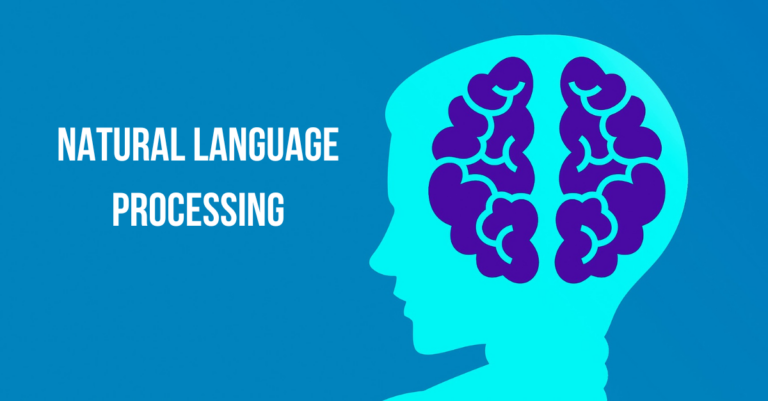Organizations are increasingly leveraging machine learning and natural language processing (NLP) for contract review, an inherently tedious process that requires strict adherence to specific legal language and corporate objectives.
In legal practice, some workflows that require human execution, such as contract review, can benefit from automation made possible by natural language processing, a component of artificial intelligence. While NLP has been around for more than 50 years, it has evolved significantly since its early days.
This article examines the key benefits that are leveraged when competent machines are employed to complete critical tasks such as contract review and negotiations. First, a brief rundown on how natural language processing works.
What is Natural Language Processing (NLP), and How Does it Work?
Humans tend to express more than the face value of the words they speak. When we communicate in person, we use tone and body language for additional context clues to what we mean. In written communications, we also have access to tone through our choice of words and expressions. There is nuance to our language that we only understand because we were raised speaking the language or have spoken it extensively. Previously, these nuances were unable to be replicated by technology, however, NLP works through preprogramming and algorithmic improvement in which contexts are learned, or programmed, to various words and phrases. The technology is also equipped to seek and interpret context clues, which allows it to match known contexts to the information it is interpreting.
Contracts should, of course, abstain from ambiguity, and remain consistent, concise, and above all; clear in their language. While one might presume that legal or corporate contracts abstain from idiomatic communication, it still exists – just in a legal context.
To that end, there are many phrases and colloquialisms that exist in the legal realm, and these can cause deficiencies like unintentional ambiguities and inconsistencies. Below are five ways NLP helps mitigate these types of issues and improve the contract negotiation process.
1) NLP Reduces the Risk of Human Error
The nature of the contract review and negotiation process requires machine-like precision. Even humans who can perform at the highest levels must run at full steam for long periods of time and will eventually find themselves burned out under daunting piles of review work – mistakes are bound to happen
Human error is one of the more frustrating parts of being a working professional. Whether it is an error you made, or something a colleague did, mistakes can drastically reduce the time to close business while exposing the company to risk. Inconsistencies cause loopholes and contradictions, leaving parties in a legal bind and vulnerable to financial and legal risk. Natural language processing identifies errors and maintains consistency across documents.
2) Simplify the Process
Using an AI contract markup technology like BlackBoiler allows legal departments, or any other group handling high-volume contracts, to review and negotiate contracts and track changes, just like a human. Automated contract markup technology analyzes a contract, reviews it based on playbook standards set by the organization, and makes edits, in minutes, reducing cycle time and increasing the speed of business, to get deals and agreements done more efficiently
Through NLP, organizations can expedite their contract process by batching contract negotiations by each contract type and status. How much time, energy and money does it take an attorney or executive team member to review even a single contract? NLP creates a more efficient workflow, and stops companies from burning time, money, and resources.
3) Improve Legal Language Consistency
NLP also helps reduce deficient clauses and unnecessary redundancies, and prevents contradictions by focusing on legal language consistency. NLP algorithms interpret context, and factor in organizational priorities and objectives, allowing machines to create predictable consistency. Contract language must be specific, precise, and consistent. Organizations in industries ranging from healthcare to insurance to construction and automotive industries are already gaining from the benefits of NLP.
4) Create Contracts that Are More Enforceable
When organizations reduce ambiguity, remove human error, and negotiate contracts with machine-level precision, two important things happen:
- Contracts are clearer
- Contracts are more enforceable
Through a continuous learning cycle of improvement, algorithms mitigate vulnerabilities that can occur through unintentional (or intentional) contradictory statements or clauses without clearly defined context. NLP ensures that contracts leave nothing open to interpretation, saving time and resources and preventing potential catastrophes and headaches. Through legal language that is precise, concise, and accurate, millions of contracts have been made more valuable and enforceable.
5) Free Up Resources for Other Tasks
With vastly more efficient contract negotiation, there is a ripple effect across the organization as resources are unlocked to complete other work. Greater efficiency and speed made possible by NLP allows organizations to lean up, take on more work, and focus on higher-level tasks. Sophisticated AI and ML-powered technologies like BlackBoiler grow smarter over time. The more an organization uses it, the more it learns and the better it performs.
In Summary
Contract review, revision, and negotiation doesn’t have to be a mountain of work. Leveraging the power of cutting-edge AI and Machine Learning like BlackBoiler’s contract markup technology is empowering businesses of all types to lighten the load. NLP creates clear, consistent, and concise contracts that can help improve the contract process for all companies. Click here to try a demo of BlackBoiler’s NLP.


